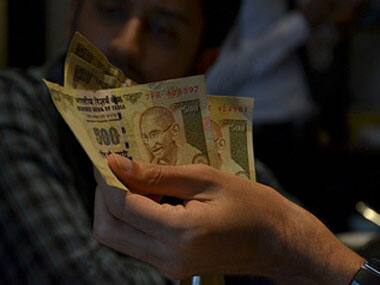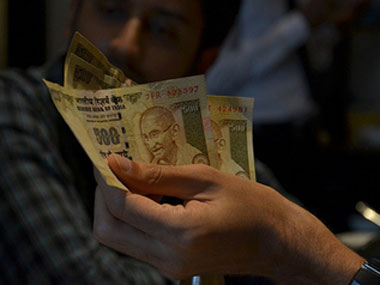The rupee has been hogging all the headlines this week. On Tuesday, it broke past its previous all-time low of 52.19 against the dollar to hit 52.72, a new lifetime low.
The outlook remains gloomy for the currency, with most experts expecting the rupee to slide even further, perhaps to 56, against the greenback in the short term.
So what does this mean for you?The rupee’s fall has different implications for different individuals.
Here’s a quick guide on what the currency’s dive can mean for you.
[caption id=“attachment_137023” align=“alignleft” width=“380” caption=“If you’re travelling abroad, you’ll find your rupees fetching lesser foreign currency, so be prepared to spend more. Unlisted Sightings/Flickr”]
 [/caption]
[/caption]
Non-resident Indians: This is a fantastic time to send some money back to India if you live and earn overseas. At least that’s how your family back home will see it. The rupee’s slide means that foreign currency remittances will fetch more in local currency. For instance, one dollar fetched Rs 44-45 before July; today, it fetches about Rs 52. India is the largestrecipientof remittances in the world, of up to $50 billion.
And it’s not just the dollar against which the rupee has tumbled: the rupee has also skidded against the euro, British pound, as well as the Australian dollar. One euro can be exchanged for Rs 69 (it was Rs around 66 a quarter ago); while one unit of UK currency can be exchanged for about Rs 81 (it was worth Rs 75 or so earlier).
Travellers: If you’re travelling abroad, you’ll find your rupees fetching lesser foreign currency, so be prepared to spend more. That applies whether you’re going abroad for a holiday or even to study. Even if you’re planning a trip in exotic South East Asia, you’ll be disappointed. The rupee has slipped even against Asian currencies like the Thai baht and Singapore dollar.
One Thai baht could be bought with Rs 1.52 three months ago, now you need to spend Rs 1.66. Ditto for the Singapore dollar: it was worth about Rs 38 three months ago, now it’s up to Rs 40.
Consumers: Bad news if you have a craving for imported goods - they’re all going to get more expensive. Better buy them now before they get even more expensive later.From cars to mobiles and LCD televisions, consumers will be shelling out more for imported products. Your fuel bills could also go higher.While international crude prices have remained more or less steady at high levels, the fall in the rupee means that the country still pays more for its oil imports, which account for one-third of India’s total imports.
That will eventually result in an increase in petrol and possibly diesel prices.
Workers: If you’re an Indian working in India for a foreign company that pays you in dollars, rejoice! You get an unexpected windfall. What kind of jobs are we talking about? Well, offshore outsourcing is one example. For example, you could be writing articles for a foreign company. If you were paid $1,000 a month, for instance, you would have received about Rs 44,000 in July. Now, your income will jump to Rs 52,000, simply because of the currency fluctuation.
On the other hand, if you’re a foreigner living in India earning in rupees, well, the situation’s not so good if you decide to convert your earnings into foreign currency.
Investors: Typically, the rupee’s slide is bad news for equity investors, because it worsens sentiment in the markets. A falling currency increases the cost of imported inputs for companies and that weighs on margins, dragging profitability lower.While, in general, a depreciating rupee helps exporters like software service providers, too much volatility in the currency’s value can also cause problems.
If you were smart enough to invest in international mutual funds, you could stand to benefit from a falling rupee. The Business Standard recently had a story on how investors could have benefited by doing just that.
)